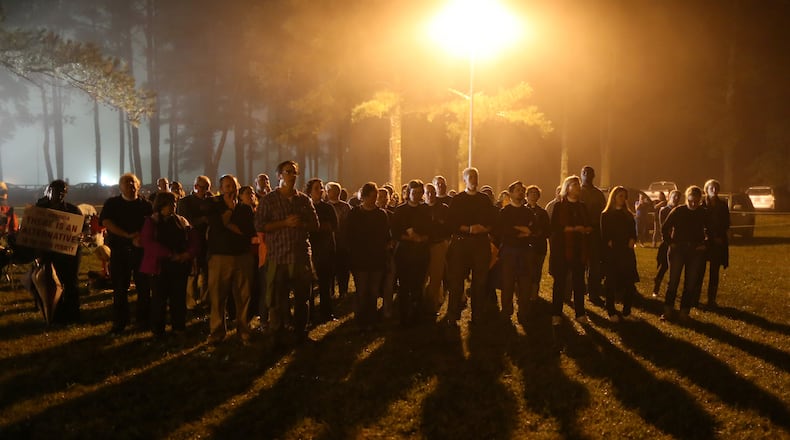The Georgia Board of Pardons and Paroles won't say why it denied Kelly Gissendaner's request for clemency, a decision that cleared the way for her execution early Wednesday.
On the other hand, the board has never explained its decisions either to deny or grant clemency. Only a few clues exist regarding the nine times since the 1970s that the board has granted clemency in death penalty cases.
The nine who received clemency, according to the Death Penalty Information Center:
- Charles Harris Hill, 1977. He had been sentenced to death in the 1975 murder of Elmo Pressley, even though his co-defendant, the actual killer, was serving a life sentence. Hill was paroled in 2008.
- Freddie Davis, 1988. He, too, was on death row while his co-defendant was not. They were convicted of the 1977 murder of Frances Coe in Meriwether County.
- William Moore, 1990. Supporters petitioned for clemency, citing his religious conversion, good behavior in prison and pleas for mercy from the victim's family. He was convicted of killing Fred Stapleton in 1974. He was released on parole in 1991.
- Harold Williams, 1991. His sentence was disproportionate to that of his accomplice, who was convicted of manslaughter but took responsibility for killing Williams' grandfather. Williams was paroled in 2011.
- Alexander Williams, 2002. He was a juvenile suffering from mental illness when he killed 16-year-old Aleta Bunch. Nine months after his death sentence was commuted, Williams killed himself in prison.
- Willie James Hall, 2004. Six jurors said they would have voted for life without parole instead of death if such a sentence had been available. He was convicted of killing his estranged wife, Thelma, in 1988. He is serving a life sentence with no possibility of parole.
- Samuel David Crowe, 2008. Supporters, including pastors and a former corrections officer, emphasized his exemplary behavior and his deep remorse for his crime. He was convicted of killing Joseph Pala during a lumber-store robbery in 1988. He is serving life without parole.
- Daniel Greene, 2012. The prosecutor said he would not have sought the death penalty if a life-without-parole sentence had been an option at the time. Greene killed Bernard Walker, 20, in 1991. He is serving life without parole.
- Tommy Waldrip, 2014. Waldrip was the only one of three defendants sentenced to death for killing Keith Evans. One of the others, his son, shot and beat Evans to death. Waldrip is serving life without parole.
It was Waldrip's pardon, unexplained by the parole board, that led to legislation this year requiring written justification of clemency decisions. But in Gissendaner's case, the board offered no such statement. Read more in today's Atlanta Journal-Constitution and at myajc.com.
About the Author
Keep Reading
The Latest
Featured




